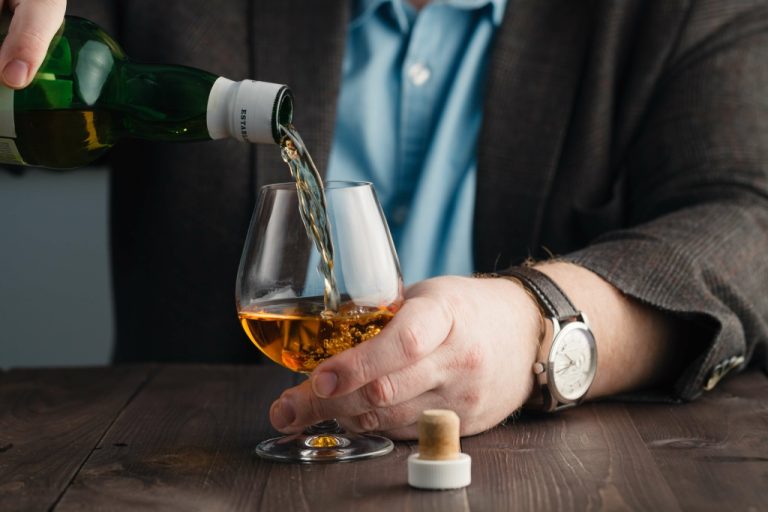A person who strives to maintain sobriety can work to overcome this mentality of a dry drunk. It may also be helpful to know that the symptoms of dry drunk syndrome are part of post-acute withdrawal syndrome (PAWS). Dry alcoholic or dry drunk is one of those problematic behavior patterns that has been identified in people who have ended their drinking days. Researched, fact-checked and transparent articles and guides that offer addiction and mental health insight from experts and treatment professionals. Our advisory board brings together leaders in behavioral health, technology, and business. Their diverse expertise ensures our resources and product are innovative, evidence-based, and effective.
Lack of Adequate Support During Recovery
When you choose to stop drinking, you’re taking a significant first step. In most cases, though, getting sober is a lot more complex than simply giving up alcohol. A persistent lack of energy is common in individuals dealing with emotional and psychological distress. Even heroin addiction without drinking, the body’s stress response can lead to exhaustion. Even though alcohol use has stopped, individuals with Dry Drunk Syndrome may engage in other reckless or impulsive behaviors as a substitute.
- Having a sponsor, connecting with others in recovery, and being held accountable also help with stability in sobriety.
- Dry drunk syndrome is considered to be a side effect or subset of post-acute alcohol withdrawal syndrome (PAWS).
- Not everyone needs professional alcohol addiction treatment, especially if their addiction isn’t severe.
- Imagine cutting sugar out of our diet but continuing to suffer its same negative effects.
Inability to Manage Emotions
But to do so, individuals must fix and change old habits and relationships. While detoxing from alcohol is part of the process, addressing the issues that led to addiction requires much deeper work. After all, recovery is not just about the absence of drugs and alcohol.
Someone who’s a dry drunk behaves in almost every way like a person still in active addiction, but they aren’t drinking. It’s about rebuilding your emotional life and learning new ways to respond to challenges. When that emotional work is avoided, even someone who hasn’t touched a drink in years can feel stuck, frustrated, or disconnected.

Recovery Can Be Life Changing
Here at Ascendant New York, we understand the importance of having access to accurate medical information you can trust, especially when you or a loved one is suffering from addiction. We specialize in compassionate, evidence-based care tailored to your needs. Whether you’re seeking help for yourself or a loved one, we’re here to guide you every step of the way.
This is what it means to be a dry drunk—present in https://platinumpavingwales.co.uk/how-to-pass-an-alcohol-urine-test-for-probation-4/ sobriety, but not truly free. Without growth and healing, old patterns remain beneath the surface, increasing the risk of relapse and emotional distress. With the right support, it’s possible to move forward, reconnect with your values, and build a life that feels whole.
Dry Drunk Syndrome & the Importance of Recovery
- For some people, dry drunk syndrome lasts until they get formal treatment for their addiction.
- It means rebuilding relationships after alcohol addiction affects families.
- The important thing is to find a recovery program that works for you and stick with it.
Perhaps, that is the reason you are struggling with dry drunk disorder. You may be dismayed to find there is something else to deal with, but at least you have a start! We at the Discovery Institute want to help you learn how to cope with your whole life, not merely part of it. They offer emotional support, practical advice, and a sense of community.
Ask your partner out for regular date nights, get more involved with any kids in your life, find fun activities to do with friends that don’t involve drinking. You may still be dealing with the stages of denial, anger, bargaining, and depression before finally reaching the point of accepting the absence of alcohol in your life. Instead, the following symptoms can develop slowly over time, especially during the first year of recovery. The Semel Institute for Neuroscience and Human Behavior states that about 75% of people recovering from AUD experience PAWS. However, there is no information on how many people these symptoms specifically affect. Of course, it’s important to set (and enforce) clear boundaries around behavior that affects you negatively, like angry outbursts or dishonesty.

While research on PAWS continues to require further study, UCLA’s Semel Institute for Neuroscience and Human Behavior found that PAWS occurs in over 75% of those of us recovering from AUD. After a loved one has stopped abusing alcohol, we sometimes expect the worst to be over. However, there can be very real concerns with relapse and how to help them manage their newfound sobriety. Understanding how a person develops dry drunk syndrome can be helpful when trying to manage the symptoms. Participating in a recovery support program can provide support, clarity, and understanding into the underlying causes of addiction and how to manage them. Substance abuse treatment exists because there are a number of steps that have been found to be effective in treating addiction and maintaining sobriety.
Alcoholism may have robbed you of your identity, but recovery gives you the chance to rebuild it. You can rediscover your creativity, mend broken relationships, and live with integrity. Real healing from addiction is about becoming who you were always meant to be—not just someone who doesn’t drink. Recognizing these signs early, whether in yourself or a loved one, can be key to preventing relapse and supporting continued growth. Emotionally, a person dealing with PAWS may have mood swings and become depressed, making them tough to be around—maybe even as unpleasant as they might have been when they were drinking. Alcohol used to provide temporary relief from such feelings, but you can’t rely on that anymore.
Having taken courses on social work, Geoffrey is adamant about providing valuable and educational information to individuals affected by mental health and the disease of addiction. Having these coping strategies ready makes tough situations easier. When you do self-care activities often, it can help lower your stress and make your mental health better. Activities like working out, sleeping well, and meditating are all great ways to keep you balanced and in charge of dry drunk syndrome symptoms your feelings. One of the best steps you can take to overcome dry drunk syndrome is to join a support group. It’s not just about talking to people who understand—it’s about realizing you’re not in this alone.
Recovery, by contrast, is a process of physical and emotional healing from the disease of addiction. According to the National Institute on Drug Abuse6, recovery is a change process. As part of this process, people improve their complete health and wellness, live in a self-directed way, and work toward reaching their full potential. Whether you’re in therapy, attending support groups, or exploring new treatment options, remember there’s no shame in needing more help.

